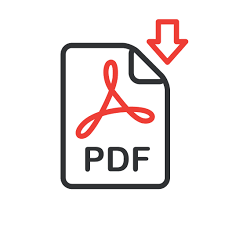Nature has always provided us with everything we need for life. In the past man needed wood to make a fire or build a shelter, and needed to hunt and kill animals to eat. Later he needed more and more land to build a house or grow plants. At present we also advance very fast. The world‘s population is constantly growing, and people need and want more. They clear land to build more houses, use fertilizers to grow more plants and build factories to produce more goods. But all this has a great impact on the environment. Industry and technology have destroyed nature. Our environment is changing. Sometimes little things can turn into big problems, such as when temperatures rise above normal levels. When it happens for a few days, it’s no big deal. The Earth will stay more or less the same. But if temperatures continue to rise over a longer period of time, then the Earth may experience some trouble, and it could change Earth’s climate like never before! When the climate changes, there may be big differences in the things that people depend on: including the level of the oceans and the places where we plant crops, the air we breathe and the water we drink.
It is important to understand that scientists don’t know for sure what global warming could bring. Some changes would be good – for people who live in a very cool climate, warmer temperatures might be welcome, and they may be able to grow different and better crops that they could before. But it is also true that changes in some places will not be good at all.
It might also affect people’s health both directly and indirectly, e.g., heat stress and other heat-related health problems are directly caused by very warm temperatures and high humidity. Untreated, heat stress can be a very serious medical problem. Scientists suspect that in many places, global warming will increase the number of very hot days that occur during the year. More and more hot days increase the possibility of heat-related health problems. Indirectly, ecological disturbances, air pollution, changes in food and water supplies, and coastal flooding might all have an impact on our health.
Global warming may make the sea levels become higher as warmer weather makes glaciers melt. Warmer weather also makes water expand; when it expands, it takes up more space and the level of the sea rises. This will affect both natural systems and manmade structures along coastlines.
Coastal flooding could cause saltwater to flow into areas where salt is harmful, threatening plants and animals. It may also reduce the quality of drinking water in these areas.
What exactly is the greenhouse effect? Greenhouse gases such as carbon dioxide, nitrous dioxide and methane, which are produced when we burn fossil fuels, trap energy from the sun and behave much like the glass panels in a greenhouse. Sunlight enters the Earth’s atmosphere, passing through the blanket of greenhouse gases. As it reaches the Earth’s surface, land and water absorb the sunlight’s energy. Once absorbed, this energy is sent back into the atmosphere. Some of the energy passes back into space, but much of it remains trapped in the atmosphere by the greenhouse gases, causing our world to heat up. Even a little extra warming can cause problems for humans, plants and animals. Well, global warming may be a big problem, but there are many little things we can do to make a difference. If we try, most of us can do our bit to reduce the amount of greenhouse gases that we put into the atmosphere. Many of these gases come from things we do every day. We must be smart about things such as driving a car or using electricity. For example, instead of driving four cars to work, four people can be together in one car. This would help especially in highly industrialized areas with a high population density.
Whenever we use electricity we produce greenhouse gases. By turning off lights when you leave a room, switching off the television and the computer when we are done with them, you can help a lot. Planting trees is fun and a great way to reduce greenhouse gases as they absorb carbon dioxide from the air. Recycle cans, bottles, glass, plastic bags, and newspapers.
When you recycle, you send less trash to landfills, and you help save natural resources. People should also learn how to use other sources of energy – solar, wind and water energy. Solar energy is used to heat homes, buildings, water and, of course, to make electricity. In coastal areas people can make use of tidal energy. As for wind and water energy, their use is affordable and accessible. Environmental problems are the problems of all mankind. If we don’t save our environment, our planet will be destroyed by ourselves.
Answer the questions:
- What forms can pollution take?
- What is the greenhouse effect?
- How green are you?
- What are fossil fuels and why are they a problem?
- How can we help under-developed countries catch up with the industrialised countries? Remember these soi called developed countries made their huge progress by creating pollution.

